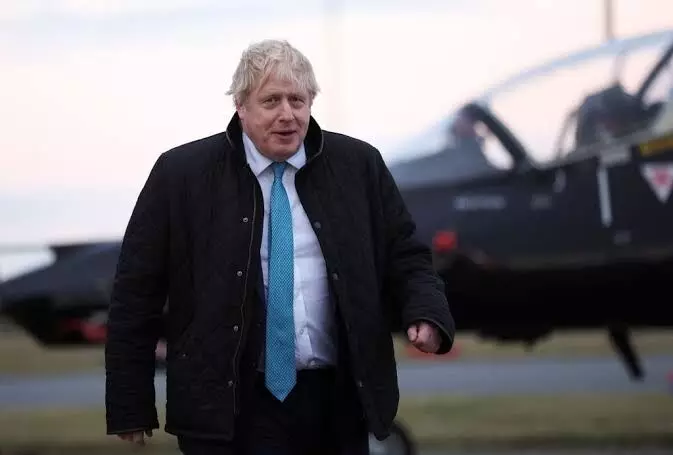
Britain to offer major NATO deployment in Europe as show of strength
text_fieldsLondon: The British government is set to make an offer of major deployment of troops, jets, weapons, warships and jets in Europe as part of a show of strength against Russian troop build-up on the borders of the country, British Prime Minister Boris Johnson announced on Saturday.
The offer, set to be made to NATO military chiefs next week, could see London double the approximately 1,150 UK troops currently in eastern European countries and "defensive weapons" sent to Estonia, his office said.
"This package would send a clear message to the Kremlin - we will not tolerate their destabilising activity, and we will always stand with our NATO allies in the face Russian hostility," Johnson said in a statement late Saturday. "I have ordered our Armed Forces to prepare to deploy across Europe next week, ensuring we are able to support our NATO allies."
Johnson is also set to hold a telephone conversation with Russian President Vladimir Putin on his visit to the region next week. He has also scheduled a meeting with NATO counterparts for next month. Britain's foreign and defence ministers will also both go to Moscow for talks with their Russian counterparts in coming days, with the aim of improving relations and de-escalating tensions, Reuters reported.
On January 22, the British Foreign Ministry had claimed their intelligence reports suggested that Russia was planning to install a pro-Kremlin leader in Ukraine, relying on defected Ukranian politicians, several of whom were now living in Russia. Former Ukrainian lawmaker Yevheniy Murayev was listed as a potential candidate although the claims were denied vehemently by the Russian Foreign Ministry and Murayev himself.
"You've made my evening. The British Foreign Office seems confused," said former Ukrainian MP Yevhen Murayev to the media. "It isn't very logical. I'm banned from Russia. Not only that but money from my father's firm there has been confiscated."
Johnson "pushed for a gear change on the Ukraine situation", after a period when his government appeared to take a back seat on international diplomacy around this issue, while battling heavy political challenges over alleged parties that violated lockdown restrictions being held by government officials.






















